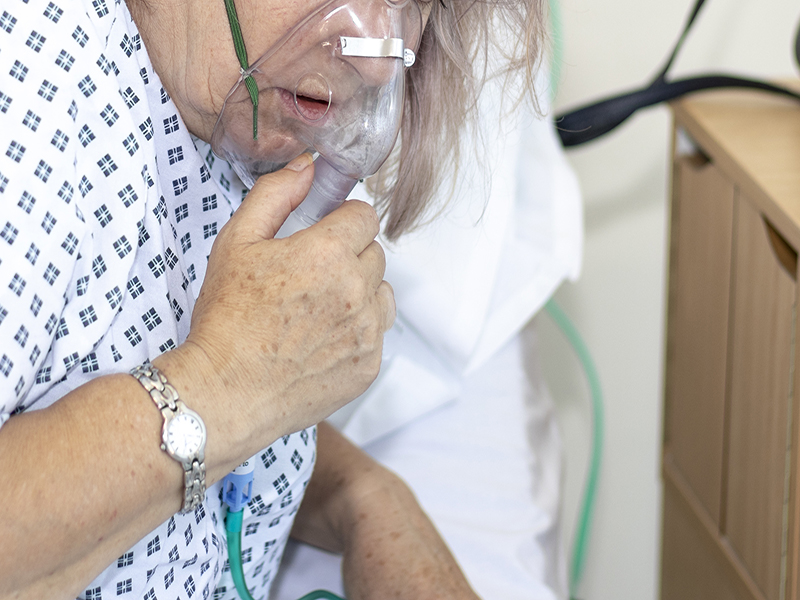Even Mild Obesity Raises Odds for Severe COVID-19
3 min read  By Alan Mozes
By Alan Mozes
HealthDay Reporter
THURSDAY, July 23, 2020 (HealthDay Information)
Even delicate obesity drastically drives up the risk for significant disease or loss of life between COVID-19 clients, scientists from Italy report.
“Well being treatment practitioners should be mindful that individuals with any quality of obesity, not just the severely obese, are a population at risk,” claimed study direct creator Dr. Matteo Rottoli.
“Added warning should be employed for hospitalized COVID-19 clients with obesity, as they are likely to expertise a brief deterioration in the direction of respiratory failure, and to call for intensive treatment admission,” extra Rottoli, a senior assistant professor of medical procedures at the Alma Mater Studiorum College of Bologna.
The obtaining is not the very first to website link obesity to even worse COVID outcomes. Nevertheless, most reports have focused on clients with a physique mass index (BMI) of forty or much more, the threshold for “intense obesity.” And that is also the cutoff employed for U.S. and U.K suggestions figuring out individuals at better risk.
But this new study of practically five hundred Italian clients hospitalized with COVID-19 in March and April implies individuals suggestions will need reassessing.
More than a fifth of the clients evaluated experienced a BMI of thirty or larger, meaning they had been thought of obese.
Mildly obese clients — individuals with a BMI between thirty and 35 — had been located to face a 2.five-times better risk for respiratory failure. They had been also five times much more likely to be admitted to an ICU, in contrast to non-obese clients.
And individuals with a BMI of 35 and up had been twelve times much more likely to die from COVID, the scientists located.
Dr. Marc Siegel, a professor of medication at NYU Langone Medical Center in New York Town, wasn’t astonished by the findings.
He agreed that “obesity is a evidently a massive risk aspect for average-to-extreme circumstances of COVID.” The point that this likely involves even the mildly obese “is in retaining with what we’ve been viewing,” Siegel claimed.
But why is that so?
As a full, “obesity has been broadly regarded as a aspect involved with impaired immunological reaction and pathogen defense,” Rottoli explained. Driving that impairment, he claimed, is a kind of “chronic inflammatory state” brought on by obesity.
Latest research out of Henry Ford Clinic in Detroit (revealed in Radiology in May well) highlighted obesity-relevant inflammation as a doable driver at the rear of a a few-times better risk for blood clots in the lungs observed between obese COVID clients.
Yet again Siegel agreed. “Even though we’re all continue to finding out this, COVID does appear to be an disease of inflammation,” he claimed. And he pressured that all the health and fitness problems involved with obesity — this sort of as large blood tension, diabetes and heart disease — “by themselves raise the risk for significant disease with COVID.”
Rottoli extra, “Obese clients have been demonstrated to have a larger viral load and a lengthier time of virus shedding, in contrast to non-obese clients.” This renders them much more contagious for lengthier periods of time, he noted.
All of this is stressing news for the much more than a single-3rd of U.S. grown ups who are obese and the 1 in thirteen who are particularly obese, according to U.S. health and fitness officials.
For obese individuals, Rottoli has two pieces of assistance: Lose fat and be cautious.
“In the mid- and extended-term, fat decline is the definitive answer to lessen the dangers in individuals with obesity,” Rottoli claimed. In the meantime, individuals who want to stay clear of having COVID “should get extra treatment, in certain about their social behavior and distancing,” by utilizing masks and preventing big gatherings and other dangerous scenarios.
The findings had been revealed July 15 in the European Journal of Endocrinology.

Copyright © 2020 HealthDay. All rights reserved.
SLIDESHOW
How to Lose Weight With no Dieting: 24 Speedy Information
See Slideshow
References
Resources: Matteo Rottoli, M.D., Ph.D., senior assistant professor, medical procedures, department of clinical and surgical sciences, Alma Mater Studiorum College of Bologna, and surgical specialist of general medical procedures, Sant’Orsola Clinic, Bologna, Italy Marc Siegel, M.D., professor, medication, NYU Langone Medical Center, New York Town July 15, 2020, European Journal of Endocrinology







